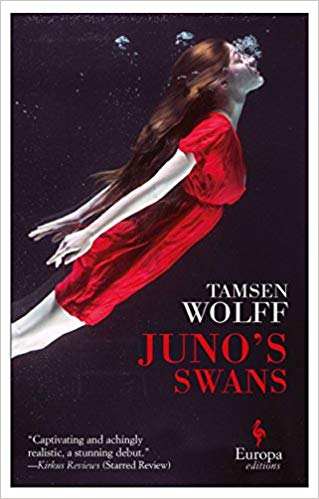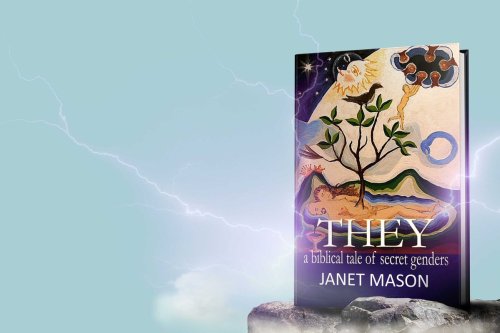This piece is airing worldwide this week on This Way Out (TWO), the syndicated LGBT radio show. Click here to listen to the entire show.
(TWO is the first international LGBTQ radio news magazine.)
Beautiful Aliens
A Steve Abbott Reader
Edited by Jamie Townsend
“Will We Survive the Eighties” is the hypothetical question that titles an essay written by Steve Abbott, a gay man and a leading figure in the 1980s avant-garde literary community based in San Francisco.
In 1992, when attending Naropa University’s creative writing program. I was scheduled to have a one on one critique session with Steve Abbott – but he wasn’t there. He had attended the program and had given a reading and a workshop but had to leave early because he was sick with full blown AIDS.
Nearly three decades later, in 2019, Beautiful Aliens, A Steve Abbott Reader edited by Jamie Townsend was published by Nightboat Books in New York.
Abbott survived the 1980s but just barely. He died in 1992 when he was forty-eight.
Abbott was many things – a poet, critic, novelist, and poetic cartoonist – but as his daughter Alysia Abbott (the author of Fairyland, a memoir about her relationship with her father), writes in the afterward of Beautiful Aliens:
“…his work was about building community. It was about hand-illustrating posters for the readings he organized…..It was about going out and engaging young men and women in classrooms but also in the cafes, bars, and bookstores around San Francisco, sharing his vast knowledge and encouraging them to add their voices to queer culture, in whatever way they could, even if that culture wasn’t getting mainstream attention. He knew how important it was to support voices on the edge, writers that were pushing boundaries and weren’t interested in keeping their readers comfortable.”
I found Beautiful Aliens, a selection of Abbott’s writings, mesmerizing. For one thing, there were so many overlapping areas that we had in common – queer writing conferences that were important to me, and favorite poets and writers such as the lesbian icon Judy Grahn.

I also found that Abbott was a writer who, in so many ways, was ahead of his time, and still has much to tell us. In his prescient essay “Will We Survive the Eighties,” Abbott writes:
“It is clear that what we are doing now … is killing us all. And as we project these attitudes onto other species and towards the Earth’s ecological system, we are jeopardizing our very planet. I would argue that we can no longer afford to see anything – not even ‘gay liberation’ or our survival — as a separate issue needing a separate cultural or a political or a spiritual agenda.
This does not mean I intend to renounce my sexual orientation, far from it. Even in times of sadness or loneliness, it remains my greatest source of strength and joy.”
I found Beautiful Aliens, A Steve Abbott Reader edited by Jamie Townsend, published by Nightboat Books in New York to be that rare thing – a voice from the past that addresses the present.











 little thrill. Lately, I’ve developed an intellectual reasoning to this: we need more feminist heroines. We need to keep believing that a woman protecting other women is possible and we need to keep thinking that it’s important.
little thrill. Lately, I’ve developed an intellectual reasoning to this: we need more feminist heroines. We need to keep believing that a woman protecting other women is possible and we need to keep thinking that it’s important.
Karl Tierney’s poetry collection airing on This Way Out — #amreading #LGBTQ
Posted in This Way Out lgbtq radio, tagged book reviews, books, Have You Seen This Man the Castro poems of Karl Tierney, inspiration, Janet Mason, Janet Mason author, Janet Mason memoirist, Janet Mason novelist, Janet Mason radio commentator, Janet Mason Tea Leaves, Jim Cory editor, Jim Cory poet, Karl Tierney, LGBTQ books, Poetry, Queer radio commentary, radio, Sibling Rivalry Press, THEY, THEY a biblical tale of secret genders, This Way Out on January 23, 2020| Leave a Comment »
This piece is airing worldwide this week on This Way Out (TWO), the syndicated LGBT radio show. Click here to listen to the entire show.
(TWO is the first international LGBTQ radio news magazine.)
When I began reading Have You Seen This Man? The Castro Poems of Karl Tierney (2019 Sibling Rivalry Press), I thought the poems of Karl Tierney might be tragic, but instead found them tragically funny – in a way that often makes the soul snicker. I thought the poetry might be tragic because they were brought to us by tragic circumstances. The editor was friend and literary executor of the author Karl Tierney who in 1994 became sick with AIDs and took his own life in 1995 when he was 39-years old. The editor, Jim Cory, is a noted poet and essayist in his own right.
Tierney never had a book published during his lifetime, but his poems were published in auspicious places such as the American Poetry Review and Exquisite Corpse.
Karl Tierney as a poet also had his serious side. In the poem “Gertrude Stein to Alice B. Toklas,” he adopts Gertrude’s voice and writes in part of the poem:
Our car is …beautiful and blue
and we are beautiful and not blue
and we are fast driving
and do not feel a bit dangerous or dirty.
We have the radio on…
In his poems about gay life in San Francisco where he lived, Karl turned his keen poetic observations on life around him. In “Adonis At The Swimming Pool,” Karl starts with:
“Who dances his thighs across the pool’s water,
spread on a mattress bloated from his breath.
Whose ripe-with-sun skin cuts through the spray
With the alingual grace of a kiss to my brow.”….
And ends with:
“Whose wet curls stroke the evening’s earliest gasp
into naughty tones and murmurs of lust.
Who would have me discussed in seedy cafés
and ruin me since I’m deaf to this hiss
behind the teeth in that insipid smile.”
From Tierney’s take on “lipstick lesbians,” MacDonna, and gay life in the Castro at a certain point in time, I found Have You Seen This Man? The Castro Poems of Karl Tierney (from Sibling Rivalry Press) to be a page-turner of a good read.
To learn more about my novel THEY, a biblical tale of secret genders (published by Adelaide Books New York/Lisbon), click here.
Read Full Post »